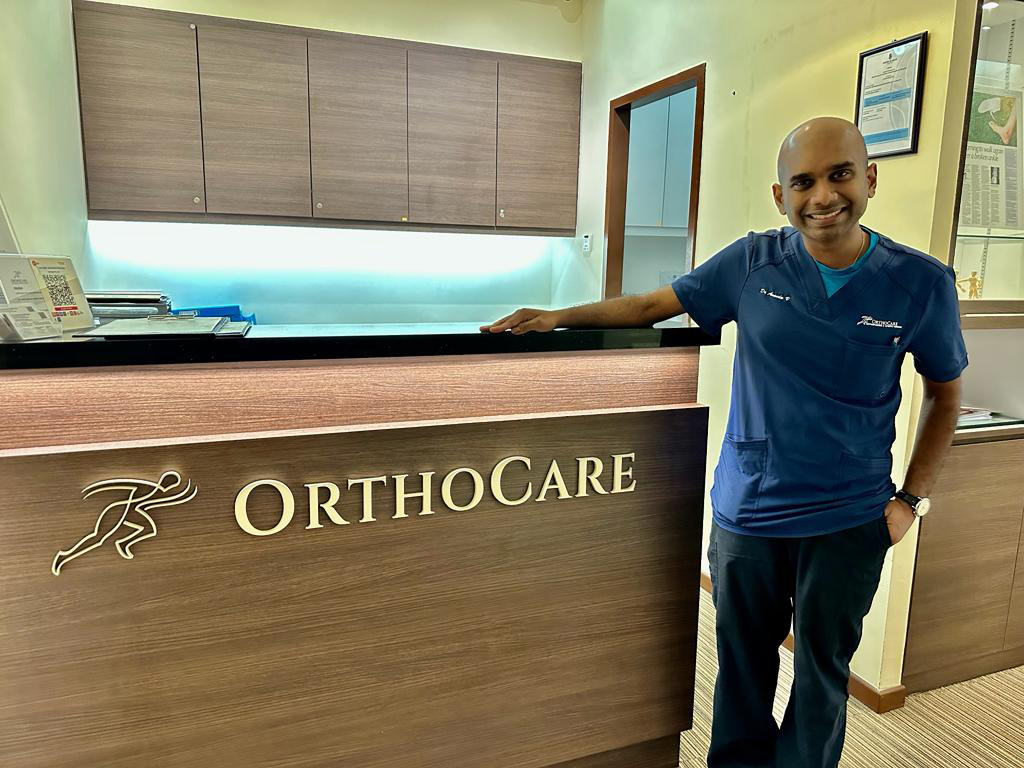If you’ve ever felt pain in your bones, joints, or muscles, you’ve undoubtedly questioned whether you need to visit a doctor or if the pain will go away on its own. Many of us disregard these symptoms, attributing them to minor injuries, overexertion, or ageing. However, chronic or worsening pain may be a sign of a more serious problem that requires medical care.
Your recovery and general quality of life can be greatly impacted by knowing when to see an orthopaedic specialist. This article discusses common illnesses addressed by orthopaedic doctors, warning signs you shouldn’t ignore, and the importance of seeking care as soon as possible. Don’t let suffering ruin your life. Take the first step towards recovery by visiting Orthocare right now.
Signs That Indicate You Should See an Orthopaedic Specialist
Orthopaedic specialists are medical practitioners with training in diagnosing and treating disorders affecting the musculoskeletal system—which includes your bones, muscles, joints, ligaments, and tendons. It’s time to schedule an appointment if any of the following symptoms are troubling you:
- Chronic Pain in the Joints or Muscles: A warning sign is pain that lasts for more than a few days or worsens with time. Persistent pain may be a sign of degenerative disease, tendonitis, or arthritis that needs to be evaluated by a specialist.
- Feeling numb or tingly: These sensations, particularly in your arms or legs, could be an indication of a herniated disc or carpal tunnel syndrome, which are conditions where nerves are compressed or damaged.
- Restricted Motion: Inflammation, injury, or joint stiffness may be the cause of your inability to move your joints completely or carry out daily tasks.
- Warmth or Swelling Around a Joint: These signs could point to inflammation, infection, or a condition like bursitis that requires urgent care.
- Limb Weakness: An orthopaedic specialist can detect muscle or nerve problems if you feel abnormally weak in your arms or legs.
- Trauma or Injury: Seeing an orthopaedic physician after suffering a serious injury, such as a fracture, sprain, or dislocation, ensures proper recovery and guards against long-term issues.
Common Conditions Treated by Orthopaedic Specialists
Orthopaedic physicians treat several different ailments, such as:
- Arthritis: Joint pain and stiffness are primarily caused by arthritis, which is frequently treated with medicine, counselling, or surgery.
- Back and Neck Pain: Back and neck pain can be brought on by conditions like spinal stenosis, herniated discs, or poor posture.
- Sports Injuries: Sports injuries include sprains, tears in the ligaments, and injuries from overuse.
- Fractures and Dislocations: For the best recovery after fractures and dislocations, proper alignment and care are essential.
- Tendonitis and Bursitis: Inflammatory diseases that can be extremely painful and uncomfortable include tendinitis and bursitis.
Why Timely Care is Crucial
If musculoskeletal problems are ignored, they may worsen, impair movement, or even cause irreversible harm. Delaying treatment for a fracture can lead to incorrect healing, whilst untreated arthritis can result in joint abnormalities. Getting timely care from an orthopaedic specialist ensures a precise diagnosis, efficient therapy, and a quicker recovery.
What to Expect During Your Visit
Your physician will do the following when you visit an orthopaedic clinic:
- Take a Detailed History: It’s crucial to understand your medical history, lifestyle, and symptoms.
- Conduct a Physical Examination: Perform a physical examination to evaluate your strength, joint stability, and range of motion.
- Order Diagnostic Tests: To identify the problem, imaging tests such as CT, MRI, or X-rays might be necessary.
Following a definitive diagnosis, your doctor will suggest a customised course of treatment. Depending on how serious your condition is, this could involve surgery, minimally invasive procedures, medication, or physiotherapy.
How Orthocare Can Help
We at Orthocare are aware of how debilitating musculoskeletal problems can be. Our team of skilled orthopaedic doctors in Singapore is committed to offering you comprehensive care that is customised to meet your needs. Our individualised treatment regimens and state-of-the-art diagnostic facilities are designed to help you restore your mobility and enhance your quality of life.
Take the First Step Towards Recovery
Pain in the muscles, joints, or bones should not be disregarded. The best strategy to avoid complications and regain your health is to seek care as soon as possible, regardless of the cause—a persistent ache or a sudden injury. Don’t allow suffering to prevent you from leading your best life. Are you looking for an Orthopaedic Clinic Near You? Come to Orthocare in Singapore right now, and we’ll help you get well.




